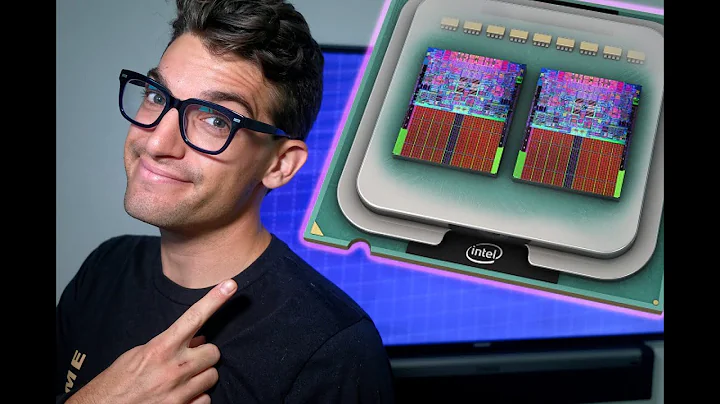Can Windows make use of 16+ core processors?
Solution 1
Let's answer it part by part.
My question is, can Windows 10 even make use of this power?
Technically - yes, based on Windows specifications it is ready to use those cores.
We know that it can support up to 32 cores but would it actually use them?
Yes, Windows theoretically can use them. No, practically there will be no significant performance boost for typical usage.
Are there programs out there that could?
Yes. From mining programs (that use CPU power for "making money") to multi-threaded compression programs, virtual machines and so on. Performance gain will be visible when running multiple single-threaded and/or multi-threaded CPU demanding applications.
These types of processors seem to be aimed at the gaming market
Those are ads, targeted mostly on gamers who don't know how to waste their money. (Explanations are given below.)
So would games be able to use all of that power?
Theoretically - yes. Practically - not now. Right now there is no AAA game that can make use of 16 CPU cores and bring any significant performance improvement. What you may gain from the most demanding game may be +1-2 FPS, compared to a typical 8 core CPU.
Game Streaming:
The cores may be useful for game streaming software, though it's dependent on the software - one can use CPU, the other GPU, the third - use both.
Yet low-lag game streaming hardware can be bought to provide constant high streaming FPS without significant harm to game FPS. The cost of such hardware (USD$200) is cheaper than the cost of "extra" CPU cores (+USD$1000).
I feel we have personal computers with masses of power that can't really be used and are hamstrung by the operating system?
Yes. Currently there is a lot of CPU and GPU power in computers and mobiles that are unused. That mostly includes users who use 4+ CPU core computers and smartphones mostly for browsing, leaving the cores almost idle most of the time.
Suggestion for gaming PCs:
Buying such CPUs for gaming is not recommended. Currently there is no game to use this power, so it's waste of money.
After a few years - when games will be able to use it - this "old-gold" CPU will miss new technologies (such as the next DDR* RAM) which you may want for having a next-generation top-gaming PC. So again, it will become a waste of money spent in the past.
Gaming computers should be upgraded approximately each three years, to always be able to run the top games. If you buy a part (CPU, GPU, or RAM) that will "last longer" (e.g. five years), then it's much better to save that extra money and upgrade the computer after three years, in order to avoid performance bottlenecks caused by old hardware.
Solution 2
From Microsoft - Windows 10 supports a maximum of two physical CPUs, but the number of logical processors or cores varies based on the processor architecture. A maximum of 32 cores is supported in 32-bit versions of Windows 8, whereas up to 256 cores are supported in the 64-bit versions.
Can it use them? Absolutely. Will the average person take advantage of this much CPU power? Not likely.
These types of processors seem to be aimed at the gaming market
Not at all. While games do require some CPU horsepower, GPU power is often king in gaming. I doubt any game would come close to using this much CPU (unless there was a bug) anytime in the near future.
These types of CPU are more for data analytics and number crunching, not for a home consumer. One could make the argument that "more" is better, there are diminishing returns in standard use environments.
There definitely are some applications that can take advantage of such a high number of cores. Video editing, 3D modeling, etc. However, that level of CPU power is not used by the average user.
Solution 3
I feel we have personal computers with masses of power that can't really be used and are hamstrung by the operating system?
Outside of specific high-performance workstations or top end gaming rigs "personal" computers with that sort of core count are still relatively rare in my experience. But as to the main point of your question - the processor isn't hamstrung by the operating system because Windows 10 will happily use all 32 cores if you give them something to do.
Historically there weren't that many use cases where you are wanting to be running 32 simultaneously CPU-bound processes for any significant length of time, as machines with large numbers of cores are gradually becoming more widely available developers are changing to take advantage of them by increasing the parallelism of their software iD Software for example specifically coded Quake Champions to take advantage of that sort of processor.
Outside of gaming the ability to run multiple VMs, each with multiple dedicated cores can be very handy.
Solution 4
Windows 10 or desktop computing in general is not where large number of cores is used.
The typical application of 16 or 32 core processors would be virtualized machines - running VMware or another virtualization platform, rather than Windows 10, as well as database servers and cloud environments.
For example, at my job we have a VMware environment running some 20 virtual servers. There are performance advantages in dedicating one physical core per virtual server, rather than using simulated logical cores.
The big database software also tends to be able to use many cores for faster processing.
Also, both virtualization platform and database software can have licencing restrictions which make it cheaper to have more physical cores rather than more processors.
See also the blog post 4 Areas Where Multi-core Processing Really Matters for some more information and examples.
Related videos on Youtube
Comments
-
Paul Alexander almost 2 years
There's currently a number of processors on the market with 12, 14, 16, 16 32 cores (AMD Threadripper, Intel i9) and so on. Can Windows 10 even make use of this power? We know that it can support up to 32 cores but would it actually use them?
Are there programs out there that could? These types of processors seem to be aimed at the gaming market so would games be able to use all of that power?
I feel we have personal computers with masses of power that can't really be used and are hamstrung by the operating system?
-
 DavidPostill over 5 yearsComments are not for extended discussion; this conversation has been moved to chat.
DavidPostill over 5 yearsComments are not for extended discussion; this conversation has been moved to chat. -
 phuclv over 5 years
phuclv over 5 years
-
-
Leliel over 5 yearsThere is a significant reason for large core counts in gaming now. Streaming is the next big thing, and running a realtime video and audio compression stream in high quality alongside a game, requires more cores than just running the game. If you're a twitch streamer ect, losing a couple of FPS off the theoretical max to keep the stream running properly is a good tradeoff.
-
TomTom over 5 yearsWrong on two points. First games - there is ONE game I know of that could be seen as mainstream AA+ title and that uses many cores (Ahses of Singularity, programmed specifically to use Dx 12 which sort of isneeded to run multi core rendering). That is it. Second, I know a lot of people using a lot of CPU in home computers. Never forget hobby photography, videography. Converting 200 picures to JPG CAN use 32 cores without problems. Those programs are aimed not for gaming, but for power users.
-
TomTom over 5 yearsHeck, STREAMING is one - playing a game AND encoding it in 4k AT THE SAME TIME really wants cores. Youtube is full of people doing that on home machines.
-
marshal craft over 5 yearsRead msdn, learn how pcs, and in this case Windows work, and you probably don't need this question. Also using multiple threads becomes less of a magical art some talented dictators get to use. Surprise its actually simple and most anyone who can spare the time can do. But that's the way anything is when you get passed all the egos and the nonsense they consist of.
-
marshal craft over 5 yearsLike for example google chrome uses separate process for each browser tab. Guess what a process is a unit of storage attached to at least one thread. So the os had to allocate redundant space for each tab you use. That's why it takes so long to open a new tab. If it wanted threads it should of used them, if it wanted segregate thread to preserve other tabs ot should of solved that a different way or did what explorer does and use segregate. All of those process could usually fit into one single process.
-
marshal craft over 5 yearsSo no windows can't speed up idiotic software always with 32 cores if that's what your asking, that 32 cores ALWAYS increase everything no matter what you do, going out of your way to fight to make slow idiotic software which surprise is now the number one browser.
-
marshal craft over 5 yearsSo buy some more ram, get a few more ssd and you can in your web browser and it's thousands of tabs and empty units of storage well.
-
 X X over 5 years@TomTom Thanks for opinions. First, Ashes of singularity does not require 16 cores. It's requirements is i5 equivalent CPU (or Quad Core min). Since game was introduced in 2016, we can expect its talking about 4-core i5 CPUs (with 8 threads at max). That's still far far away from full 16 cores. Also AoS may be a non-optimized game (haven't played it), as AC Unity was. Second point - agree, those programs are in the category given under the answer of "Are there programs out there that could?". Third, Youtube is still not full of people with 16 core CPUs.
X X over 5 years@TomTom Thanks for opinions. First, Ashes of singularity does not require 16 cores. It's requirements is i5 equivalent CPU (or Quad Core min). Since game was introduced in 2016, we can expect its talking about 4-core i5 CPUs (with 8 threads at max). That's still far far away from full 16 cores. Also AoS may be a non-optimized game (haven't played it), as AC Unity was. Second point - agree, those programs are in the category given under the answer of "Are there programs out there that could?". Third, Youtube is still not full of people with 16 core CPUs. -
TomTom over 5 yearsI never sait is REQUIRES - but it DOES take advantage. Which is why I object to none. It CAN use 16 actually. youtube.com/watch?v=gS2UR4mi4Dk shows it with 8 cores.
-
 X X over 5 years@Leliel, Thanks, added point regarding to game streaming.
X X over 5 years@Leliel, Thanks, added point regarding to game streaming. -
Austin Hemmelgarn over 5 yearsOne could argue that it is hamstrung by the OS, just not because the OS can't take advantage of the cores. There's a very good reason that you don't see Windows being used for almost any HPC workloads, and it's got almost nothing to do with how many CPU cores it supports.
-
 DavidPostill over 5 yearsComments are not for extended discussion; this conversation has been moved to chat.
DavidPostill over 5 yearsComments are not for extended discussion; this conversation has been moved to chat. -
 Kirlac over 5 yearsGood answer. One thing I would add is that these ARE being aimed at the gaming market for their multitasking abilities. The games themselves (mostly) won't utilize those cores, but the extra core count does allow for someone to stream their gameplay, play some background music and run something (discord, twitch, etc) to allow them to chat/interact with viewers without game performance taking a hit as the cpu has enough power to run it all simultaneously
Kirlac over 5 yearsGood answer. One thing I would add is that these ARE being aimed at the gaming market for their multitasking abilities. The games themselves (mostly) won't utilize those cores, but the extra core count does allow for someone to stream their gameplay, play some background music and run something (discord, twitch, etc) to allow them to chat/interact with viewers without game performance taking a hit as the cpu has enough power to run it all simultaneously -
Luaan over 5 yearsMost importantly, games wouldn't wholeheartedly embrace something like 16-core CPUs before they made up a significant share of the market - and it's hard to imagine a game that would work good enough on a 4-core CPU, while also improving the gameplay on a 16-core. It would be great for games like the X series, where there's a lot of background tasks going on (relatively easy to parallelize and without demands on the GPU), but if you made an X game for a 16-core CPU, anyone without a 16-core CPU would be left in the dust.
-
Luaan over 5 years@AustinHemmelgarn Not really. Windows does run even supercomputers, though it's very rare. There's Windows HPC Server and Azure, too. It's not like HPC workloads run on run-of-the-mill Ubuntu :) Even normal Windows support NUMA just fine (since Windows XP, in fact - though obviously it's a lot better on Server). The reason Windows servers aren't used for HPC workloads much is mostly that they'd have no competitive advantage IMO - Linux can be slightly cheaper, and somewhat easier to modify (mainly because the people who can do so are more plentiful).
-
Austin Hemmelgarn over 5 yearsWindows HPC Server is essentially dead, Azure is not Windows (and more people actually run Linux on it than Windows) and isn't really an HPC platform. And HPC workloads do run just fine on run-of-the-mill Ubuntu with exactly the same set of extra libraries you would need to run them on Windows. Also, if you're going to argue things other than actual performance (which WIndows is lacking in), the better argument for why Windows isn't used much in HPC is that UNIX got there first (by about 20 years in fact).
-
 T.E.D. over 5 yearsOne would imagine the high-end data analytics / number crunching crowd are also moving their parralizable stuff to GPUs.
T.E.D. over 5 yearsOne would imagine the high-end data analytics / number crunching crowd are also moving their parralizable stuff to GPUs. -
user78090 over 5 yearsGames that are more about simulation than graphics may be inclined to use more CPU than GPU. Also, games can be released such that it only makes sense to play on 'larger-world' settings if you have a monstrous CPU, while the mass market is generally able to play on 'normal' settings.
-
rich remer over 5 yearsA lot of games are becoming CPU bound nowadays as well, but the critical thing here is that there are VERY few games that utilize multiple CPU cores, so games generally don't benefit.
-
Peter Mortensen over 5 yearsWhat do you mean by "See quantum"?
-
marshal craft over 5 yearsHaha, no clue. It's fundamental part. Shows most here down voting don't have any fundamental idea of how Windows and Linux multithread. It is mostly similar between the two. Quantum settings are one differe
-
marshal craft over 5 yearsAnyways im not really gaining much from explaining here obviously, and you are, you're learning.
-
Ismael Miguel over 5 yearsTo add to this, gamers usually look at Single-core and Multi-core performance, and not really a lot to the number of cores. An i5 can still perform pretty amazing (if you pair it with the right GPU, for the game(s) you will play)




